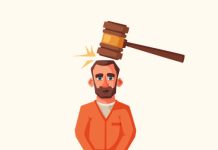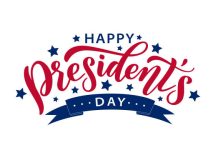With a new wave of COVID-19 infections precipitated by the Delta variant sweeping the country, pressure is mounting to make vaccinations mandatory for US citizens via the powers of the federal government. To enact such measures would require full authorization of the three existing COVID-19 vaccines (Moderna, Pfizer, Johnson & Johnson) through the Food and Drug Administration (FDA), currently headed by Commissioner Janet Woodcock.
Andy Slavitt, former acting administrator of the Centers for Medicare and Medicaid Services and temporary Senior Advisor to the COVID-19 Response Coordinator in the Biden administration until June of this year stated, “I think once the vaccines go through full FDA approval, everything should be on the table, and I think that everything will be on the table at the level of municipalities, states, employers, venues, government agencies.”
The idea of a federal vaccine mandate is unsettling for many Americans, who cite reasons ranging from a lack of knowledge of the full negative effects of the vaccines, to concerns of overreach of the role of the federal government.

American citizens may have valid reasons for not trusting the safety of currently approved vaccines. According to Johns Hopkins University & Medicine, “A typical vaccine development timeline takes 5 to 10 years, and sometimes longer, to assess whether the vaccine is safe and efficacious in clinical trials, complete the regulatory approval processes, and manufacture sufficient quantity of vaccine doses for widespread distribution.” Of course, the COVID-19 epidemic created an unprecedented need as hospitals’ intensive care units became overwhelmed and the death toll, currently approaching ⅓ of a million, became a grim and constant reminder of the consequences of infection.
Yet, concerns remain. One of the most vocally concerned individuals is Hooman Noorchashm MD, PhD, a cardiothoracic surgeon and founder of the American Patient Defense Union, Inc. which he describes as “a union of, by and for patients — capable of providing adequately powered liability signals to the corporate healthcare establishment so that it can improve and evolve.” In a Feb. 15 email to Commissioner Woodcock, Noorchashm sounded the alarm over the practice of vaccinating people with previous or current, asymptomatic SARS-CoV-2 infections:
Though the clinical trials that preceded the vaccine EUA did include a number of patients with prior or asymptomatic infections, the numbers of such subjects were too small to elucidate a well powered safety signal. Additionally, it is nearly certain that the subset of recently or currently infected patients who were elderly and frail with underlying cardiovascular disease were almost entirely excluded from the trial. It is a simple fact that FDA, Pfizer and Moderna do NOT know whether the vaccine is safe in such vulnerable persons with recent or prior SARS-CoV-2 infections.

Noorchashm was particularly worried about a hyper-immunological response the vaccines may cause in people with recent SARS-CoV-2 infections, even people who have fully recovered. He is referring to the phenomenon of “COVID-19 cytokine storm, a physiological process in which “Continuously high levels of three of these cytokines (CXCL10, CCL7 and IL-1 receptor antagonist) were associated with increased viral load, loss of lung function, lung injury and a fatal outcome.” Essentially this cytokine storm is the body attacking itself, causing widespread and sometimes untreatable vascular inflammation that leads to an acute, and sometimes lethal pulmonary crisis. This is what Noorchashm had to say:
Viral antigens persist in the tissues of the naturally infected for months. When the vaccine is used too early after a natural infection, or worse during an active infection, the vaccine force activates a powerful immune response that attacks the tissues where the natural viral antigens are persisting. This, I suggest, is the cause of the high level of adverse events and, likely deaths, we are seeing in the recently infected following vaccination.
To be clear, Dr. Noorchashm is not an anti-vaxxer in general, nor an anti-COVID 19 vaccine advocate by any stretch of the imagination. In fact, he made his point of view abundantly clear in an interview with Tucker Carlson, and then again in the face of withering criticism, with the following statements:
- The COVID-19 vaccines are some of the most powerful and effective ones we’ve ever created. The fact that America did so in under a year is a testament to our nation’s scientific ingenuity and technical prowess. The achievement of this vaccine by Operation Warp Speed was nothing short of a modern day scientific miracle.
- The COVID-19 vaccine, if administered efficiently to enough persons without immunity against SARS-CoV-2, will save lives, will induce herd immunity and will limit the evolution of new mutants by preventing natural infections.
However, Noorchashm draws the line at forced vaccinations, stating, “No persons should ever be forced to take any medical treatment, including vaccines. And no person’s civil liberties, employment or educational opportunities should be curtailed, because of their choice to refuse vaccination.”
And Noorchashm is not alone in his concern. UCLA Geffen School of Medicine Doctor Joseph Lapado and Yale School of Public Health Doctor Harvey Risch have also issued warnings about the broader safety profile of the approved COVID-19 vaccines.
In addition to pointing out the inconsistencies and reversals of policy recommendations from the CDC, such as masking guidelines, Laado and Risch warn about other, more troubling reversals: “Another reversal in thinking may be imminent. Some scientists have raised concerns that the safety risks of Covid-19 vaccines have been underestimated. But the politics of vaccination has relegated their concerns to the outskirts of scientific thinking—for now.” These experts also highlight that “The large clustering of certain adverse events immediately after vaccination is concerning, and the silence around these potential signals of harm reflects the politics surrounding Covid-19 vaccines. Stigmatizing such concerns is bad for scientific integrity and could harm patients.”
The points made by Noorchashm, Laado, and Risch are neither hyperbolic, nor unfounded, because there are also Constitutional-based concerns about the very nature of the role of the federal government in our lives with regard to vaccine mandates. The Voice of America (VOA), a U.S. congress funded broadcast organization that is part of the U.S. Agency for Global Media (USAGM), the government agency that oversees all non-military, U.S. international broadcasting, argues, “The federal government has never instituted a blanket national vaccine mandate, and it’s unclear whether it has the authority to do so, according to legal experts. Nor does it have the power, experts say, to direct states to make vaccination compulsory.”
Of course, in reality, the federal government already does mandate vaccinations, including COVID-19 vaccinations, for federal employees and members of the military, a policy most people do not question. However, should the federal government start requiring U.S. citizens as a whole to receive COVID-19 vaccinations, especially in light of growing concerns over safety, this may be an encroachment on the structure and design of federalism, which places most of the power in the hands of state and local governments.
To gain some legal perspective, it’s important to look at legal precedents. In the case of vaccines, the most well known Supreme Court ruling occurred in the Jacobson v. Massachusetts ruling, on February 20, 1905, in which the court, by a 7-2 majority, said that the city of Cambridge, Massachusetts “could fine residents who refused to receive smallpox injections.” The ruling was in response to Pastor Henning Jacobson, who refused the vaccination on medical grounds. Writing for the majority opinion, Justice John Marshall Harlan concluded a citizen:
[M]ay be compelled, by force if need be, against his will and without regard to his personal wishes or his pecuniary interests, or even his religious or political convictions, to take his place in the ranks of the army of his country and risk the chance of being shot down in its defense. It is not, therefore, true that the power of the public to guard itself against imminent danger depends in every case involving the control of one’s body upon his willingness to submit to reasonable regulations established by the constituted authorities, under the sanction of the State, for the purpose of protecting the public collectively against such danger.
However, Harlan stopped short of granting unchecked power to government, writing, “We are not inclined to hold that the statute establishes the absolute rule that an adult must be vaccinated if it be apparent or can be shown with reasonable certainty that he is not at the time a fit subject of vaccination or that vaccination, by reason of his then condition, would seriously impair his health or probably cause his death.”
And while the federal government is unlikely to mandate COVID-19 vaccines due to opposition, it has other means at its disposal to effectively push through mandates via the Commerce Clause, for which there is ample precedent. The Commerce Clause, embedded in Article I, Section 8, Clause 3 of the US Constitution, reads “To regulate Commerce with foreign Nations, and among the several States, and with the Indian Tribes” and “pay the debts and provide for the common defense and general welfare.” This verbiage of this clause has been used multiple times by the federal government to regulate human activity that it deems has any significant and relevant connection to commerce transpiring between states in the Union.
One of the clearest examples is the National Minimum Drinking Age Act in 1984, which used the power of the purse strings to coerce states into adopting a minimum drinking age of 21 years of age or risk losing federal funding for highways. Congress passed the law under pressure from Mothers against Drunk Driving, and although there was some pushback, every state eventually complied, with Louisiana eventually buckling in 1996.
Given the nature of seemingly unending federal spending and the reality of constrained state budgets, it’s not an illogical leap to think the federal government may once again use the Commerce Clause to persuade incalcitrant states and their residents to knuckle under to vaccine mandates. If Congress acts in this manner, it will likely be challenged and end up in the U.S. Supreme Court. At that point, anything is possible.
At Newsweed.com, we adhere to three simple principles: truth, balance, and relatability. Our articles, podcasts, and videos strive to present content in an accurate, fair, yet compelling and timely manner. We avoid pushing personal or ideological agendas because our only agenda is creating quality content for our audience, whom we are here to serve. That is why our motto is ”Rolling with the times, straining for the truth.”
Your opinion matters. Please share your thoughts in our survey so that Newsweed can better serve you.
Charles Bukowski, the Los Angeles beat poet that captured the depravity of American urban life once said, “There is something about writing poetry that brings a man close to the cliff’s edge.” Newsweed is proud to stand in solidarity and offer you a chance to get close to the cliff’s edge with our first Power of Poetry Contest. Are you a budding bard, a versatile versifier, a rhyming regaler? Do you march to the beat of iambic pentameter, or flow like a river with free verse? If so, here’s your opportunity to put your mad poetic chops to the test. Enter our poetry contest for bragging rights and an opportunity to win some cash!






